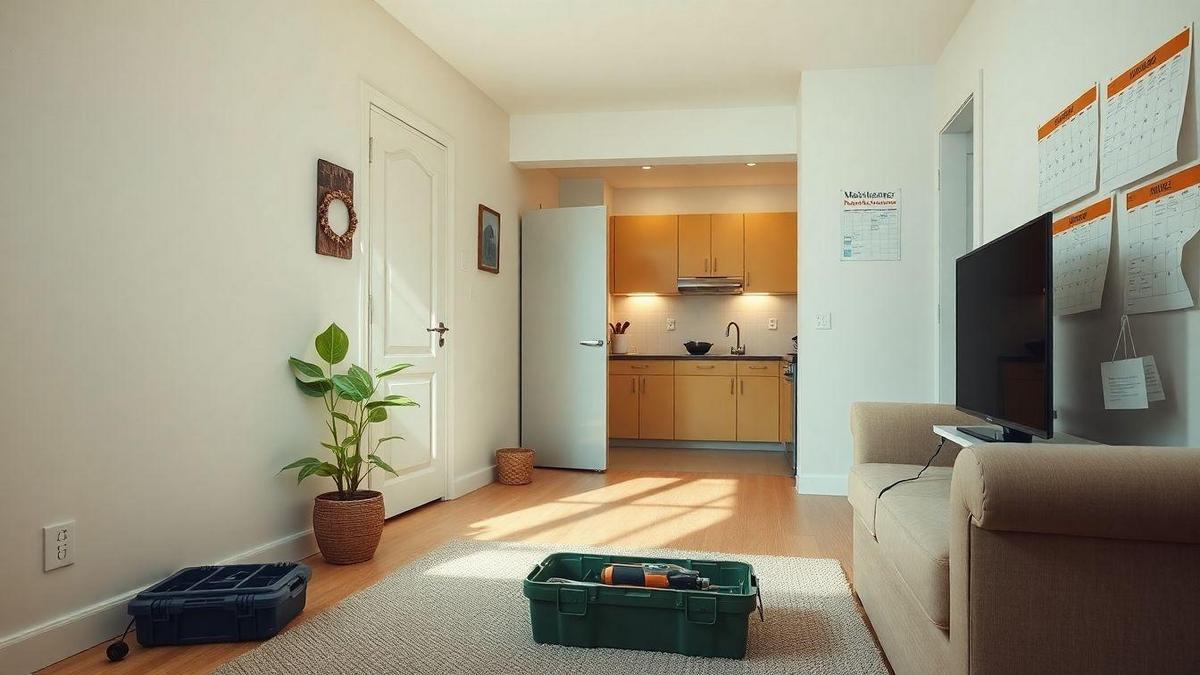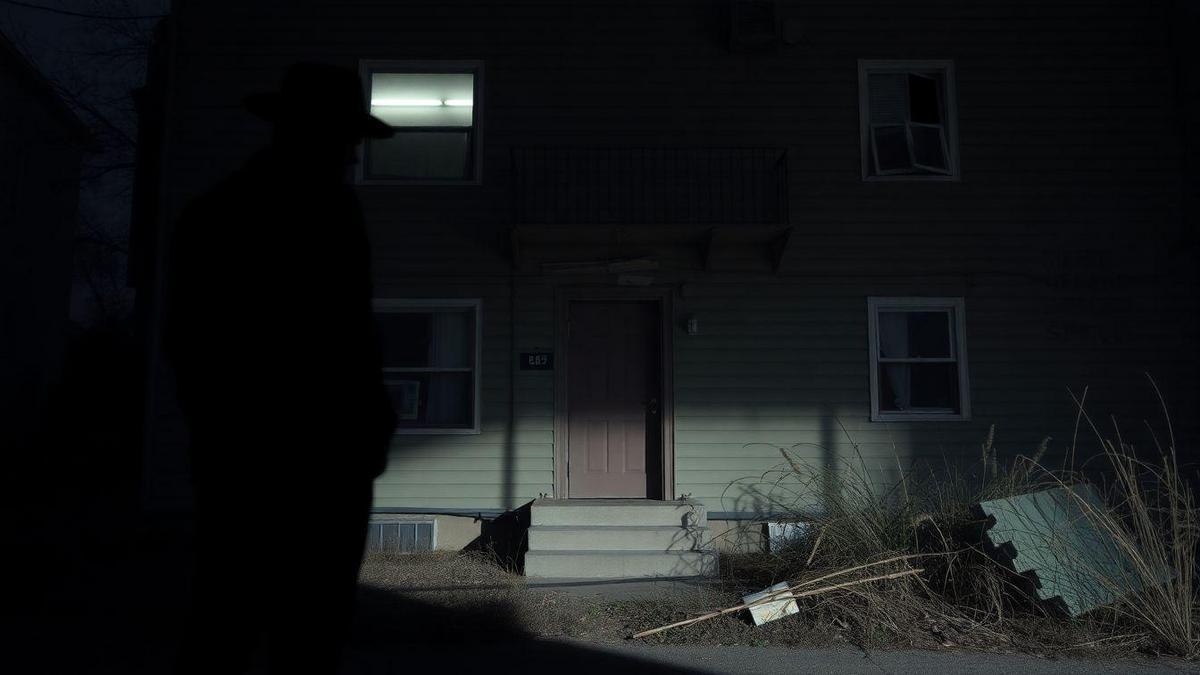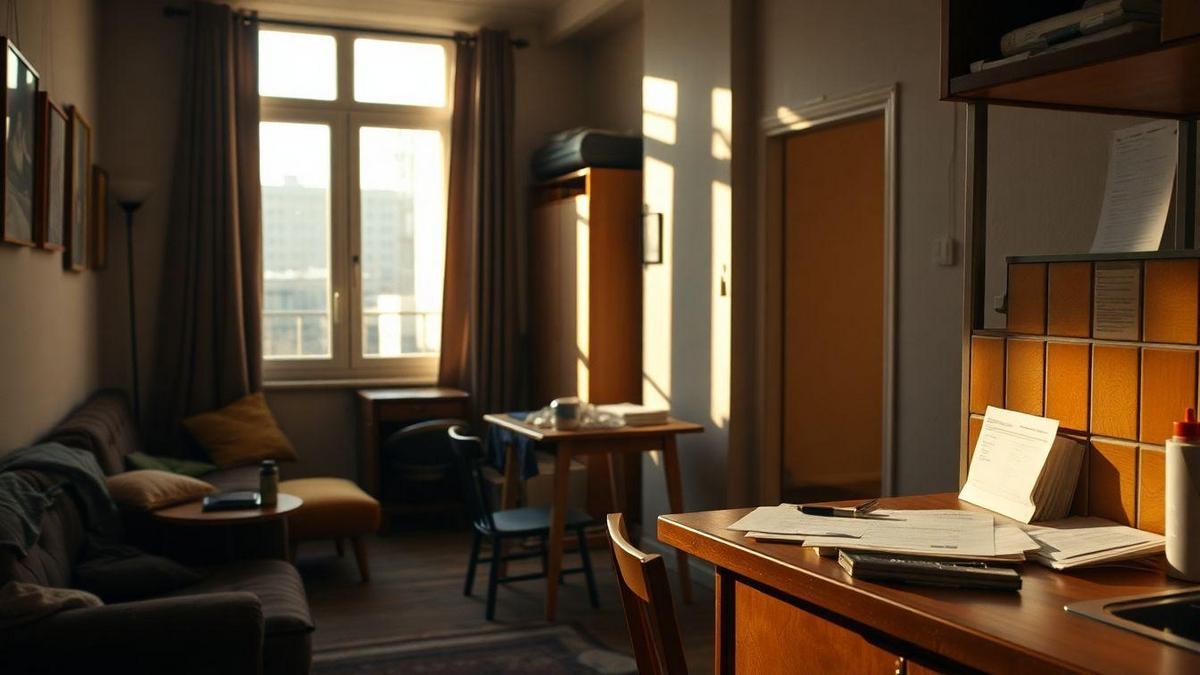Finding a small apartment can be exciting, but it comes with some hidden surprises. You might think you’re getting a great deal, but there are utility costs, maintenance fees, and things your landlord won’t tell you about. In this article, we’ll dive into the hidden costs of renting a small apartment and share tips on how to negotiate those extra fees. Get ready to uncover what you really need to know before you sign that lease!

Why Utilities Might Be Higher Than You Think
When you live in a small apartment, you might expect your utility bills to be low. After all, you have less space to heat or cool, right? But hold on! Those bills can sometimes surprise you. Let’s dive into why your utilities might be higher than you think.
Hidden Costs of Living in a Small Apartment
- Energy Efficiency: Just because your apartment is small doesn’t mean it’s energy-efficient. Older buildings might have poor insulation or outdated appliances that use more energy than necessary.
- Heating and Cooling: In a small apartment, heating and cooling can be tricky. If you have a window unit or a space heater, these can suck up energy and drive your bills up.
- Water Usage: You might think a small space means less water use, but that’s not always true. If you take long showers or run the dishwasher frequently, your water bill can soar.
- Location Matters: Living in a big city can mean higher utility costs. Urban areas often have more expensive rates for electricity and water.
Comparing Utility Costs
Here’s a quick look at how different factors can impact your utility bills:
| Factor | Low Cost | Medium Cost | High Cost |
|---|---|---|---|
| Energy-efficient appliances | $50/month | $75/month | $100/month |
| Heating/Cooling methods | $30/month | $50/month | $80/month |
| Water usage | $20/month | $40/month | $60/month |
Real-Life Example
Let’s say you live in a small apartment in a bustling city. Your energy bill might be around $100 each month. But if you have an old fridge that’s not energy-efficient, that could add another $30! And if you enjoy hot showers, your water bill might jump to $50. Suddenly, your total utilities are hitting $180!
Tips to Lower Your Utility Bills
- Switch to LED bulbs: They use less energy and last longer.
- Seal windows and doors: This keeps your heating and cooling where it belongs.
- Limit water usage: Shorten those showers and fix leaks.

Small Apartment Maintenance Costs You Can’t Ignore
Owning a small apartment can be a dream come true, but it does come with its fair share of responsibilities. One of the biggest things you need to keep an eye on is maintenance costs. Let’s dive into some of those expenses you can’t afford to overlook!
1. Regular Repairs
Every apartment needs a little TLC now and then. Here are some common repairs you might face:
- Leaky faucets: A small drip can turn into a big problem if left unchecked. Fixing it quickly can save you money on water bills.
- Drafty windows: If your windows are letting in cold air, you might want to think about sealing them or replacing old weather stripping.
- Clogged drains: Regularly cleaning your sinks and tubs can prevent bigger plumbing issues down the line.
2. HVAC Maintenance
Heating and cooling systems are vital for your comfort. Here’s what you should keep in mind:
| Service | Frequency | Estimated Cost |
|---|---|---|
| Filter Replacement | Every 3 months | $15 – $50 |
| Annual Check-up | Once a year | $75 – $150 |
| Duct Cleaning | Every 3-5 years | $300 – $500 |
Taking care of your HVAC system can prevent costly breakdowns. It’s like giving your small apartment a warm hug during winter!
3. Pest Control
You don’t want creepy crawlies making your apartment their home! Regular pest control can help you avoid a full-blown infestation. Here’s what you might face:
- Ants and roaches: A few can quickly turn into a swarm. Regular treatments can keep them at bay.
- Rodents: These little guys can cause significant damage. If you see one, it’s time to call in the pros!
4. Appliance Maintenance
Your appliances work hard for you, so don’t ignore them. Here’s a quick checklist:
- Fridge: Clean the coils every few months to keep it running efficiently.
- Washer/Dryer: Check hoses for wear and tear. A small leak can lead to big problems.
- Oven: Regular cleaning can help it last longer and work better.
5. Emergency Repairs
Sometimes, things go wrong when you least expect it. Having a little cash set aside for emergencies is a smart move. Here are some common unexpected costs:
- Water heater failure: This can be a real shocker! Repairs can run anywhere from $150 to $800.
- Electrical issues: If your lights start flickering, it’s time to call an electrician. This can cost you between $100 and $300.

What landlords don’t always disclose
When you’re hunting for a small apartment, you might feel like you’re navigating a maze. Landlords often hold back information that could change your mind. Here are some things they might not tell you upfront:
Hidden Fees
- Application Fees: These can add up quickly. Always ask about them.
- Maintenance Fees: Some places charge extra for upkeep. Know what you’re getting into.
- Utilities: Is water included? What about gas or electricity? Make sure to clarify.
Safety Concerns
- Crime Rates: Landlords may not mention if the area has a high crime rate. Check local crime stats yourself.
- Building Safety: Ask about fire alarms, sprinklers, and emergency exits. You want to feel safe at home.
Previous Issues
- Pest Problems: If there were issues with pests in the past, a landlord might keep quiet. Don’t be shy—ask!
- Water Damage: Past leaks can lead to mold. This is something you definitely want to know about.
Lease Terms
- Rent Increases: Some leases allow for rent hikes after a year. Make sure you understand the terms.
- Subletting Rules: If you plan on having a roommate or subletting, know the rules. Some landlords are strict about this.
Neighborhood Vibes
- Noise Levels: A lively area can be fun, but too much noise can be a pain. Visit at different times of the day to get a feel.
- Future Developments: New construction can change the neighborhood. Ask if there are any upcoming projects nearby.
Table of Common Disclosures
| Disclosure | What to Ask |
|---|---|
| Application Fees | “What are the application fees?” |
| Maintenance Fees | “Are there any monthly maintenance fees?” |
| Utilities | “Which utilities are included in the rent?” |
| Crime Rates | “What is the crime rate in this area?” |
| Building Safety | “What safety measures are in place?” |
| Pest Problems | “Have there been any pest issues?” |
| Water Damage | “Has there ever been water damage in this unit?” |
| Rent Increases | “Can you explain the rent increase policy?” |
| Subletting Rules | “What are the rules for subletting?” |
| Noise Levels | “How noisy is the area at night?” |
| Future Developments | “Are there any planned developments nearby?” |

How to Negotiate Hidden Fees
When you’re renting a small apartment, you might find yourself face-to-face with some sneaky hidden fees. These fees can pop up like weeds in a garden, and they can really take a bite out of your budget. But don’t worry! With a little know-how, you can tackle these fees like a pro. Here’s how to negotiate them effectively.
Know What to Look For
Before you even start negotiating, it helps to know what hidden fees might be lurking around. Here are some common ones:
- Application Fees: Sometimes you pay just to apply for the apartment.
- Pet Fees: If you have a furry friend, this can add up quickly.
- Utilities: Make sure you know what’s included and what’s not.
- Parking Fees: If you need a spot for your car, this could cost you extra.
Do Your Homework
Research is your best friend here. Look up similar small apartments in the area. What fees do they charge? If you find lower fees elsewhere, you can use that info to negotiate. You might say, I found another place with no application fee. Can you match that?
Ask Questions
When you’re looking at a small apartment, don’t be shy! Ask the landlord or property manager about any fees. You might say, Are there any fees I should know about? This shows that you’re paying attention and will help you uncover any surprises.
Be Prepared to Walk Away
Sometimes the best negotiation tactic is to be willing to walk away. If the fees seem too high and the landlord isn’t budging, you can say, I think I need to look at other options. This can make them reconsider their stance.
Offer Something in Return
If you’re really set on a place, think about what you can offer. Maybe you can sign a longer lease or agree to pay a few months’ rent upfront. This can motivate the landlord to cut some fees.
Keep It Friendly
Remember, you’re dealing with people. Keeping a friendly tone can go a long way. Smile, be polite, and show appreciation for their time. A little kindness can make a big difference in negotiations.
Document Everything
Once you’ve settled on fees, get everything in writing. This way, you have proof of what you agreed upon. It’s like having a safety net for your finances!
Conclusion
In conclusion, navigating the world of small apartments can feel like walking through a minefield, with hidden costs lurking at every turn. From utility bills that can unexpectedly skyrocket to maintenance fees that can pinch your budget, it’s crucial to arm yourself with knowledge. Remember, being proactive—asking the right questions and doing your homework—can save you from financial headaches down the road.
So, as you embark on your journey to find the perfect small apartment, keep your eyes peeled for those sneaky fees and don’t hesitate to negotiate. After all, you deserve a cozy home that fits your budget! If you found this article helpful and want to dive deeper into the world of small space living, check out more articles at Simple Small Space Living. Happy apartment hunting!
Frequently asked questions
What are the hidden costs of renting a small apartment?
Renting a small apartment often includes fees like utilities, parking, and maintenance costs. You might not see these until it’s too late.
Is renters insurance necessary for a small apartment?
Yes! Renters insurance protects your stuff. It’s an added cost, but it can save you a lot in case of damage or theft.
Are there extra fees when signing a lease for a small apartment?
Absolutely. You could pay an application fee, security deposit, or even a pet fee. Read the lease closely!
How do utilities affect my small apartment budget?
Utilities can spike in small apartments too, especially in winter or summer. Keep an eye on those bills!
Can I negotiate my rent for a small apartment?
Sometimes! If you find issues or outdated features, ask for a lower rate. It’s worth a try!
Follow us on Pinterest

